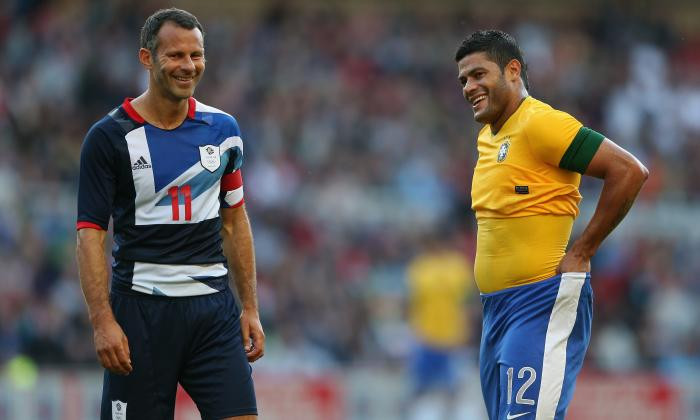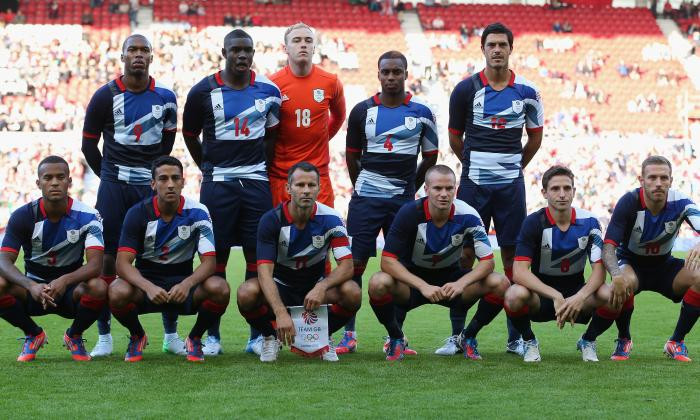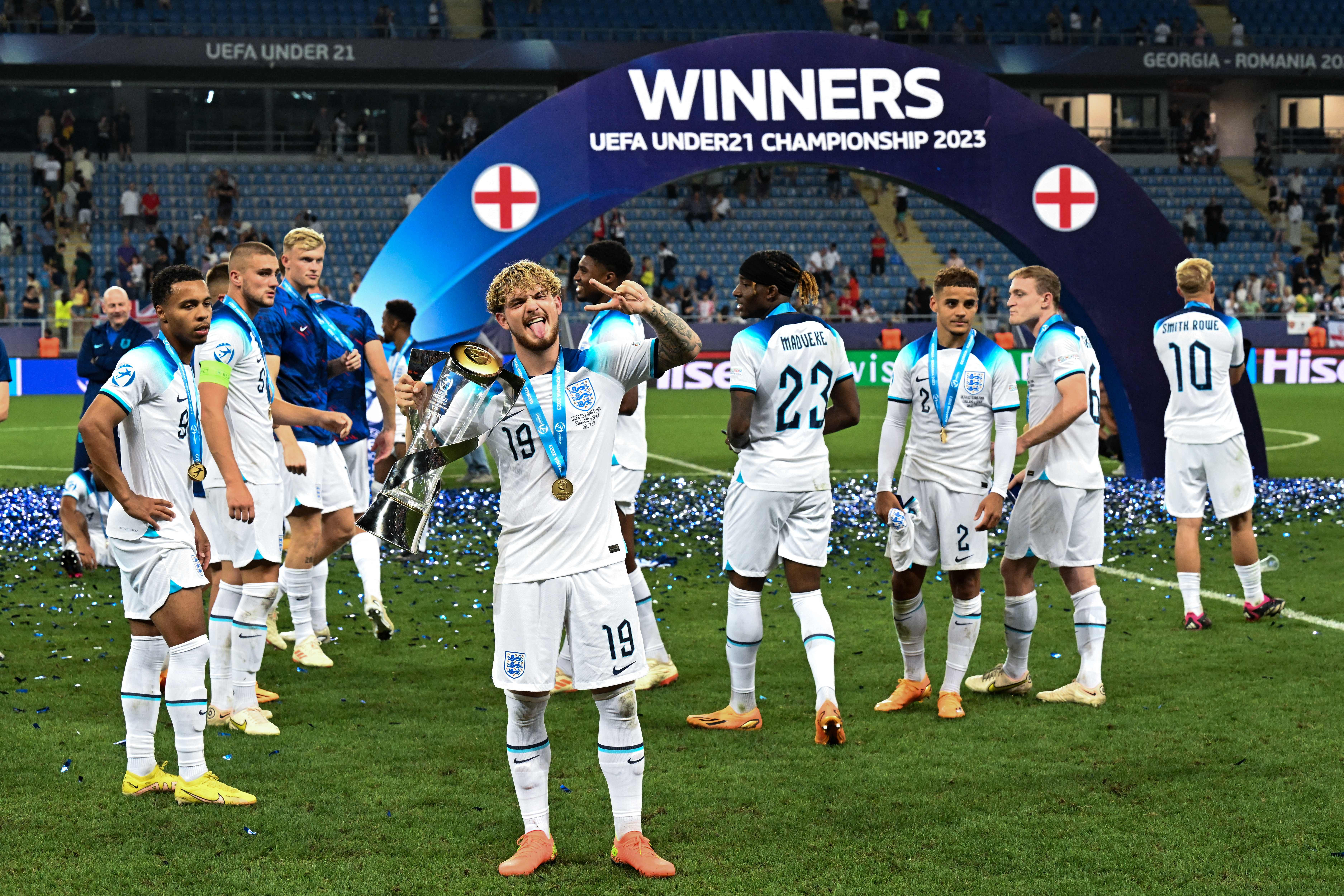Are you wondering if the England football team will be competing in the Olympics? The short answer is no; England doesn’t participate as a separate entity. Instead, the UK competes as Great Britain (Team GB). However, Team GB will not be fielding a men’s or women’s team at the upcoming Olympics due to a complex interplay of factors, including historical agreements and qualification failures. CAUHOI2025.UK.COM delves into the reasons behind this absence, exploring the history, politics, and qualification processes that determine Olympic football participation for the UK. Learn about the unique structure of football governance within the UK and its impact on international competitions, including the Olympics and Team GB football.
1. Understanding Great Britain’s Olympic Football History
Great Britain’s participation in Olympic football has been sporadic, marked by periods of success and extended absences. To understand why England isn’t directly in the Olympics, we need to examine the structure of football within the United Kingdom and how it relates to the Olympic Games. Unlike FIFA-governed competitions like the World Cup and the European Championship, the Olympics are overseen by the International Olympic Committee (IOC).
1.1. The Home Nations and Olympic Representation
In FIFA/UEFA competitions, England, Wales, Scotland, and Northern Ireland each have their own Football Associations (FAs) and compete independently. However, within the IOC, these nations are registered as a single entity under the name Great Britain. This means that for the Olympics, they compete together, accumulating medals as Team GB. This arrangement stems from the historical context of the Olympic movement, where the UK was one of the founding nations.
1.2 Early Olympic Successes
Great Britain enjoyed considerable success in the early Olympic football tournaments, claiming gold unofficially at Paris 1900 and officially at London 1908 and Stockholm 1912. These early successes solidified the UK’s place in Olympic football history.
 Manchester United legend Ryan Giggs captained Team GB at London 2012
Manchester United legend Ryan Giggs captained Team GB at London 2012
1.3. The Shift Away From Olympic Participation
Over time, the other home nations – Scotland, Wales, and Northern Ireland – grew concerned that competing as a single entity in the Olympics could jeopardize their independence in FIFA/UEFA tournaments. This led to a gradual decline in Team GB’s participation in Olympic men’s football, effectively stopping in the 1970s.
2. The London 2012 Exception
The 2012 London Olympics provided a brief resurgence for Team GB’s men’s football team. As the host nation, Great Britain was granted automatic entry, leading to a one-off agreement to field a team.
2.1. A Combined Squad
The London 2012 squad comprised 13 English and 5 Welsh players, with no representatives from Scotland or Northern Ireland. This selection reflected the complex negotiations and compromises required to form a unified team.
2.2. Quarter-Final Exit
Despite the excitement surrounding their participation, Team GB’s journey ended in the quarter-finals with a penalty shootout loss to South Korea. This result highlighted the challenges of assembling a cohesive team from different national backgrounds in a short period.
3. Qualification Complexities and Missed Opportunities
Since London 2012, the absence of Team GB in Olympic football has largely been due to qualification failures and a lack of agreement among the home nations.
3.1. UEFA Under-21 Championship as a Qualifier
European qualification for the men’s Olympic tournament is tied to the UEFA Under-21 European Championship. The top teams in the U-21 Euros typically earn spots for the Olympics.
3.2. England’s U-21 Euro Victory and its Implications
While England won the 2023 UEFA Under-21 Euros, this triumph did not automatically secure Team GB’s Olympic spot. Due to the ongoing disputes and lack of formal agreement, the Olympic places were instead awarded to Israel and Ukraine, alongside runners-up Spain.
3.3. The Women’s Qualification Route
For the women’s tournament, the qualification process involves the highest-ranked women’s team among the four home nations attempting to secure one of the European spots. If successful, the spot is then handed to Team GB.
3.4. England’s Missed Opportunity in the Nations League
For the current Olympics, that honor fell to England. However, the Lionesses fell short, finishing second in their Nations League group and failing to secure a spot for Team GB. Despite a dominant 6-0 victory over Scotland in their final group game, it wasn’t enough to guarantee qualification.
 Team GB are not playing Olympic football this summer
Team GB are not playing Olympic football this summer
4. The Ongoing Dispute and Future Prospects
The primary reason for Team GB’s absence lies in the ongoing dispute among the home nations regarding representation and potential impacts on their individual FIFA/UEFA status.
4.1. Protecting Individual FA Status
Scotland, Wales, and Northern Ireland fear that consistently competing as Team GB in the Olympics could compromise their independent status within FIFA and UEFA. This fear stems from the desire to maintain their autonomy in international football competitions and protect their unique footballing identities.
4.2. The Lack of a Formal Agreement
Without a formal, long-term agreement among the home nations, the prospect of Team GB regularly competing in Olympic football remains uncertain. Negotiations and compromises are necessary to overcome these challenges.
5. Alternative Perspectives and Potential Solutions
While the current situation presents challenges, there are alternative perspectives and potential solutions that could pave the way for future Team GB participation.
5.1. Emphasizing the Benefits of Olympic Participation
Highlighting the benefits of Olympic participation, such as increased funding, exposure for players, and national pride, could help sway opinions and encourage greater cooperation among the home nations.
5.2. Establishing a Clear Qualification Pathway
Developing a transparent and equitable qualification pathway that addresses the concerns of all home nations is crucial. This could involve rotating the responsibility of qualifying among the nations or implementing a system that guarantees representation from each country.
5.3. Learning from Other Multi-National Teams
Examining the experiences of other multi-national teams in international competitions, such as the British & Irish Lions in rugby, could provide valuable insights and best practices for managing a unified team.
6. Impact on English Football Fans
The absence of Team GB in the Olympics is undoubtedly a disappointment for English football fans. Many supporters view the Olympics as an opportunity to showcase the nation’s talent on a global stage and celebrate sporting achievements.
6.1. Missed Opportunity for Young Players
The Olympics provide a valuable platform for young players to gain international experience and develop their skills. The absence of Team GB means that promising English players are missing out on this opportunity.
6.2. Reduced Exposure for the English Game
The Olympics offer significant media coverage and exposure for participating nations. The absence of Team GB diminishes the visibility of English football and its players on the world stage.
7. The Future of Team GB in Olympic Football
The future of Team GB in Olympic football remains uncertain. Overcoming the historical and political hurdles requires ongoing dialogue, compromise, and a shared vision among the home nations.
7.1. Potential for Future Agreements
Despite the current challenges, there is always the potential for future agreements that could pave the way for Team GB’s return to Olympic football. The key lies in finding a solution that respects the autonomy of the home nations while also harnessing the collective power of British football.
7.2. The Importance of Collaboration
Collaboration and open communication are essential for resolving the ongoing dispute and ensuring that Team GB can once again compete in Olympic football. By working together, the home nations can create a legacy of success and inspire future generations of British footballers.
 This could have been the triumph that booked Britain
This could have been the triumph that booked Britain
7.3. Focus on Long-Term Goals
A focus on long-term goals, such as developing youth talent and promoting the growth of football across the UK, can help align the interests of the home nations and create a more unified approach to international competitions.
8. Overcoming the Challenges: The Path Forward for Team GB
While the road to Olympic participation for Team GB is fraught with challenges, it is not insurmountable. By addressing the core issues and fostering a spirit of collaboration, the home nations can overcome these obstacles and create a brighter future for British football on the Olympic stage.
8.1. Addressing Concerns About Independence
One of the primary concerns of Scotland, Wales, and Northern Ireland is the potential impact of Olympic participation on their independence within FIFA and UEFA. To address this, a clear agreement must be established that guarantees their continued autonomy in these organizations. This agreement could outline specific conditions for Team GB’s participation, ensuring that it does not compromise the individual status of the home nations.
8.2. Creating a Fair and Transparent Qualification Process
A fair and transparent qualification process is essential for ensuring that all home nations have an equal opportunity to participate in the Olympics. This process could involve rotating the responsibility of qualifying among the nations or implementing a system that guarantees representation from each country based on performance. The key is to create a system that is perceived as equitable and avoids any perception of favoritism.
8.3. Highlighting the Benefits of Olympic Participation
While the concerns about independence are legitimate, it is also important to highlight the numerous benefits of Olympic participation. These benefits include increased funding for football development, enhanced exposure for players and clubs, and the opportunity to showcase British talent on a global stage. By emphasizing these advantages, it may be possible to sway opinions and encourage greater cooperation among the home nations.
8.4. Engaging with FIFA and UEFA
To address the concerns about independence, it may be necessary to engage with FIFA and UEFA to seek assurances that Team GB’s participation in the Olympics will not jeopardize the status of the home nations within these organizations. This could involve formal agreements or statements of support from FIFA and UEFA, providing further reassurance to Scotland, Wales, and Northern Ireland.
9. The Economic and Social Impact of Olympic Participation
Beyond the sporting achievements, Olympic participation has a significant economic and social impact on the host nation and participating countries.
9.1. Economic Benefits
Hosting the Olympics can generate billions of dollars in revenue through tourism, infrastructure development, and job creation. Participating in the Games can also boost a nation’s economy through increased exports and foreign investment.
9.2. Social Benefits
The Olympics can foster a sense of national pride and unity, inspiring citizens to embrace sport and healthy lifestyles. The Games can also promote cultural exchange and understanding, breaking down barriers and fostering goodwill among nations.
10. Case Studies of Successful Olympic Football Programs
Examining successful Olympic football programs from other countries can provide valuable insights and inspiration for Team GB.
10.1. Brazil
Brazil has a rich history of success in Olympic football, winning gold medals in 2016 and 2020. Their success can be attributed to a strong youth development system, a commitment to attacking football, and a passionate fan base.
10.2. Argentina
Argentina won gold medals in 2004 and 2008, showcasing their ability to produce world-class players and compete at the highest level. Their success can be attributed to a strong tactical approach, a focus on teamwork, and a winning mentality.
10.3. Nigeria
Nigeria won gold in 1996, becoming the first African nation to achieve this feat. Their success can be attributed to a talented squad of players, a dynamic coaching staff, and a belief in their ability to overcome adversity.
11. FAQs About England and the Olympics
1. Why doesn’t England compete in the Olympics as England?
Because the UK competes as a unified entity called Great Britain (Team GB) in the Olympics.
2. Why is it called Team GB and not Team UK?
GB stands for Great Britain, which is the name under which the United Kingdom is registered with the International Olympic Committee (IOC).
3. Has Team GB ever won gold in Olympic football?
Yes, Great Britain won gold unofficially at the 1900 Paris Olympics and officially at the 1908 London Olympics and the 1912 Stockholm Olympics.
4. Why wasn’t there a Team GB men’s football team in the Olympics after the 1970s?
Scotland, Wales, and Northern Ireland feared it would risk their independence in FIFA/UEFA tournaments.
5. When did Team GB last participate in men’s Olympic football?
London 2012, as the host nation.
6. Why didn’t England’s Under-21 Euro win secure an Olympic spot for Team GB?
Ongoing disputes and lack of agreement among the home nations prevented it.
7. How does the women’s team qualify for the Olympics?
The highest-ranked women’s team among the four home nations attempts to secure a European spot, which is then handed to Team GB.
8. Why didn’t the Lionesses secure a spot for Team GB in the current Olympics?
They finished second in their Nations League group, failing to qualify.
9. What are the main concerns preventing Team GB’s regular participation in Olympic football?
Protecting the individual FA status of Scotland, Wales, and Northern Ireland in FIFA/UEFA.
10. What could potentially allow Team GB to participate more regularly in the future?
A formal, long-term agreement among the home nations addressing concerns about independence and qualification pathways.
12. CAUHOI2025.UK.COM: Your Go-To Source for In-Depth Answers
Navigating the complexities of international sports and national representation can be challenging. At CAUHOI2025.UK.COM, we strive to provide clear, concise, and well-researched answers to your pressing questions. Whether you’re curious about the Olympics, football governance, or any other topic, our team of experts is here to help.
12.1. Reliable and Up-to-Date Information
CAUHOI2025.UK.COM is committed to providing reliable and up-to-date information from trusted sources. Our team of researchers and writers meticulously verify all facts and claims to ensure accuracy and credibility.
12.2. Easy-to-Understand Explanations
We understand that complex topics can be confusing. That’s why we strive to present information in a clear and easy-to-understand manner, avoiding jargon and technical terms whenever possible.
12.3. A Wide Range of Topics
From sports and politics to science and technology, CAUHOI2025.UK.COM covers a wide range of topics to satisfy your curiosity and expand your knowledge.
Do you have more questions about Team GB, the Olympics, or any other topic? Visit CAUHOI2025.UK.COM today to explore our extensive library of articles and get the answers you need. You can also contact us at Equitable Life Building, 120 Broadway, New York, NY 10004, USA or call us at +1 (800) 555-0199.
We encourage you to explore CauHoi2025.UK.COM further for more insights and information, or to submit your own questions for expert answers. Our goal is to be your trusted source for knowledge and understanding.
Keywords: Team GB football, Olympic football, England football team, Great Britain Olympics, FIFA, UEFA, home nations, Olympic qualification.
